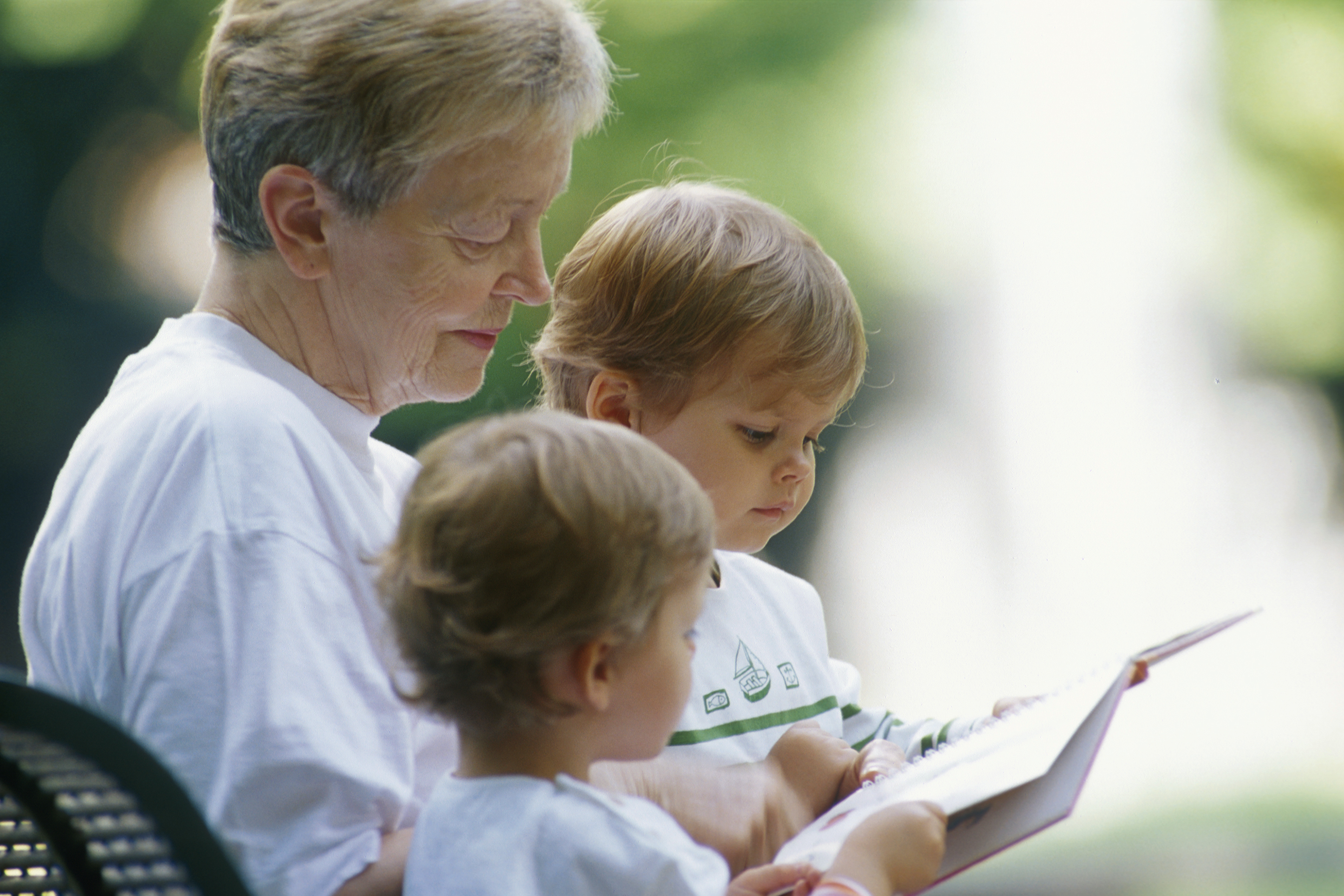
By Heather Cameron
Tomorrow is the International Day of Older Persons, designated by the United Nations in order to recognise the important contributions made by older people, while raising awareness of the issues of ageing.
Today there are around 600 million people aged 60 years and over world-wide. A number that is set to double by 2025 and reach 2 billion by 2050.
With people living longer and healthier lives, it is not surprising older people are playing a considerably more active and increasingly important role in society. Not least when it comes to contributing to the care of their grandchildren.
Extent of kinship care
Kinship care – when children are brought up by relatives or family friends in the absence of their parents – has grown markedly in recent years.
It is estimated that between 200,000 and 300,000 grandparents and other relatives are raising children who are unable to live with their parents. Common reasons cited for this include abuse and neglect, parental illness or disability, parental substance misuse, domestic violence or death of a parent.
In examining the prevalence of kinship care, drawing on census data, a recent University of Bristol study found that there has been a 7% increase in the kinship child population in England since 2001 – more than three times that of the population growth rate of all children in England, which was 2% over the same time period.
The study also found that one in two (51%) children were growing up in households headed by grandparents.
Positive outcomes
With regard to the children in kinship care, research suggests that they do ‘significantly better than children in care’, both emotionally and academically.
Indeed, a recent study on the educational outcomes of looked after children found that children in long-term foster or kinship care made better progress than children in other care settings.
The largest kinship carer survey in the UK, conducted by Family Rights Group, also highlights the effectiveness of kinship care in preventing children entering or remaining within the care system, to the benefit of both the child and the public purse. The data found that 56% of children had come to live with the kinship carer straight from the parents’ home, with 27% having been in unrelated foster care.
The caring contribution of grandparents has also been shown to have made a material difference to maternal rates of employment.
And as 95% of children being raised in kinship care are not officially ‘looked after’, billions of pounds are saved each year on care costs.
But while benefiting the public purse, and despite evidence that kinship children have better outcomes, many kinship families face a financial burden. The University of Bristol study found that 40% of all children in kinship care in England were living in households located in the 20% of the poorest areas in England (an improvement of only 4% since 2001), and three quarters (76%) of kinship children were living in a deprived household.
Impact on grandparents
As there is no statutory requirement for local authorities to make provision for kinship carers and no automatic right to child benefit, many receive no formal support; leading to financial hardship, and the stress that comes with it.
Many kinship carers have had to give up work or reduce their working hours, either permanently or temporarily. And this is often their main source of income.
A study from Grandparents Plus on discrimination against kinship carers found that of the 77% of grandparents that have asked for professional help, only 33% received the help they needed. And 30% said they didn’t receive any support at all.
The study also found that, overall, kinship carers score ‘significantly below average’ when it comes to their wellbeing.
Other recent research has suggested that regular and occasional care for grandchildren can impact on the mental health of grandparents. The findings indicated that ten additional hours of childcare per month increases the probability of developing depressive symptoms by 3.0 and 3.2 percentage point for grandmothers and 5.4 to 5.9 percentage points for grandfathers.
Policies that substitute informal with formal childcare, it argued, could improve the mental wellbeing of grandparents.
Of course there are positive impacts on grandparents too, many of whom find caring for grandchildren rewarding and who enjoy closer relationships with them, which can in turn have a positive effect on their health. As the research suggests:
Final thoughts
It is clear that grandparents play an increasingly vital role in family life. But it seems this role is in need of greater recognition and support, if society is to continue to benefit from this ‘hidden army’ of kinship carers.
If you enjoyed reading this, you may also be interested in our previous blog on the economic opportunities of an ageing society, published on last year’s International Day of Older Persons.
Follow us on Twitter to see what developments in public and social policy are interesting our research team.
Share
Related Posts
By Donna Gardiner While free school meals (FSM) have been available in England on a means-tested basis since 1944, recent years have seen a renewed focus upon the potential benefits of providing free school meals to all school-aged children. Currently, ....
Today sees the start of Community Garden Week 2023. Across the UK, communities will be celebrating the many and varied types of community gardens, from children’s and neighbourhood gardens to therapy gardens and allotments. The benefits of community gardens are ....
By Hollie Wilson At the start of 2020, an independent review was published setting out what needed to be done to bring about changes to the care system for children and young people in Scotland. At the heart of the ....
The “No Wrong Door” (NWD) programme means exactly that – there is no wrong door to turn to for young people seeking support. NWD works on several core principles, which include working with young people’s birth family or guardians, allowing ....
